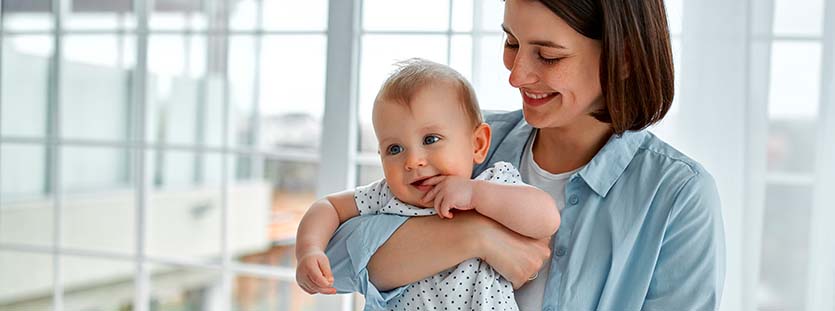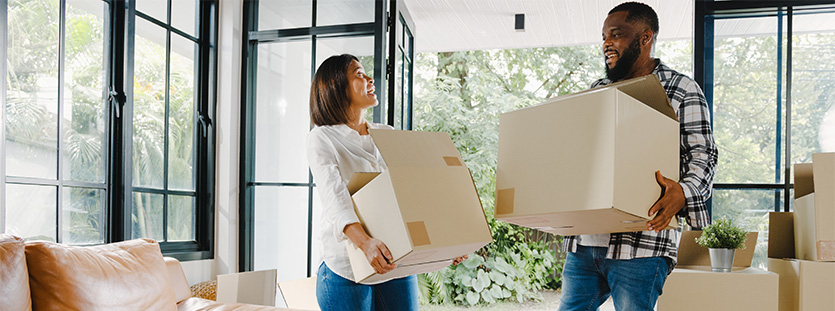Have you ever thought about living and working abroad? 2021 seems like a great year to make a move and start exploring all the amazing international job opportunities. It can seem daunting at first, but we are here to help, with almost 30 years supporting expats around the world. Keep reading for our insights into the best expat jobs abroad to find out which opportunity is the right one for you. Ready to find the perfect job overseas?
Are you thinking of moving abroad with your family? Or are you already in the process of relocating with kids? We know that planning to move abroad gives you a lot to think about, but when you’re thinking of moving with your children you have to think about and plan so much more. So, to make it easier for you, we have come up with a list of best countries to raise a family around the world, and shared some top tips from expats who have already had experience of relocating abroad with family. What can you learn from the families who have already moved to new homes in other countries and are raising their kids abroad?
Best countries to raise a family when you are relocating with kids
Making the decision to move abroad is a big decision for anyone, but if you have children who will be making the move with you, the relocation process can become even more daunting. The benefits of living and working abroad at any age are enormous; however, kids often have difficulty seeing the exciting parts of such an opportunity in the face of the loss of familiar locations and friends who will be left behind. Language can initially be a barrier too; ensuring that your move abroad is successful for all of your family members when you are relocating with kids will take significant preparation in advance of your departure date. So, what are the best countries in the world to raise a family?
UNICEF ranked best countries across the Organisation for Economic Co-operation and Development (OECD) and European Union (EU) based on their national family-friendly policies:
- Sweden
- Norway
- Iceland
- Estonia
- Portugal
- Germany
- Denmark
- Slovenia
- Luxemburg
- France
Source: UNICEF’s Office of Research – Innocenti. Are the world’s richest countries family friendly? Policy in the OECD and EU. 2019
Since this ranking, which analyses six categories that identify favorable conditions for raising a family, including safety, happiness, cost, health, education and time, other studies have produced slightly different lists.
Here, we take a closer look at some countries with the world’s best conditions to raise a family and how their approaches differ. Despite the COVID-19 pandemic, Western European countries top a list of nations seen to be the best countries in the world to raise a family.
What are the best countries to raise a family?
The coronavirus has put a spotlight on how difficult it is to raise children and juggle a career at the same time. Lack of free or affordable child care was a problem before the pandemic, so this is something you should definitely consider when relocating with kids. So, the ranking below draws from a global perspective and ranks countries based on scores from a compilation of different country attributes: safety, childcare cost, happiness, health, education, maternity and paternity leave.

Iceland
Not only is Iceland known as one of the best places in the world to be a mum, it’s also the world’s best place for working parents, thanks to the flexibility and benefits both parents enjoy when it comes to raising kids. Icelandic parents enjoy more time with their newborns. Close to 90% of fathers take their mandatory 3 months’ paternity leave, and research shows that Icelandic dads continue to be involved in their kid’s childhood, whether they are at work or university, mothers and babies are welcome everywhere – even in parliamentary sessions. The reason for this is pragmatic: babies need to stay close to their mums during this crucial stage of development.
Beyond the newborn stage, Icelandic parents have access to a wealth of activities and facilities that make it easier to bring their children around5. By simply including their kids in as many of their life experiences as possible, the precious moments and memories they share enable children to bond naturally closer with their parents.
Mums and dads learn to balance their work and social commitments while staying involved in their children’s development. Free from any pressure to choose between family and career, parents share child rearing responsibilities while having the space and time for themselves to grow as individuals.
Country breakdown:
Safety: 10/10
Childcare cost: 9/10
Happiness: 8/10
Health: 9/10
Education: 7/10
Maternity and paternity leave: 10/10
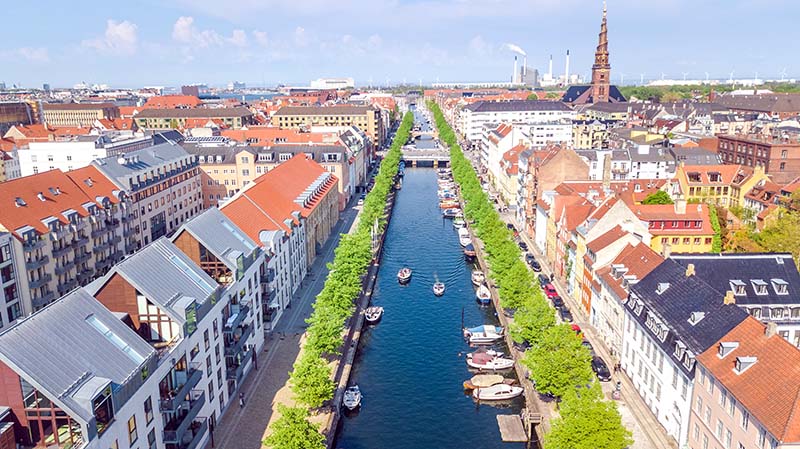
Denmark
The Scandinavian country is known for its excellent track record in terms of child care, safety standards, and enabling infrastructure, that’s why it is on our list of best places for relocating with kids. Citizens with per capita GDP of over $52,000 are more than happy to pay higher taxes as they are getting the best atmosphere for the upbringing of children. Safety, care about human rights, environment for gender equality and a well-developed public education system are among the factors that brought Denmark to one of the best countries to raise a family list.
Some of the reasons behind are government promoting gender equality by offering earnings-related day care system and a very flexible parental leave policy. Working hours are short, and it’s perfectly OK to leave work at 3 or 4 o’clock to pick up your kids. There’s a good system for early childhood health. A nurse visits your home when your child is a baby. Later, there are regular check-ups with a doctor. If your child has the sniffles, you can take off work and stay home with her. The first two days are paid time off.
And, of course, there’s the day care system. It’s not free, but it’s reasonably priced, and it’s nice to be able to drop off your kid in a safe place with trained people while you go to work.
Country breakdown:
Safety: 9/10
Childcare cost: 9/10
Happiness: 9/10
Health: 6/10
Education: 8/10
Maternity and paternity leave: 8/10
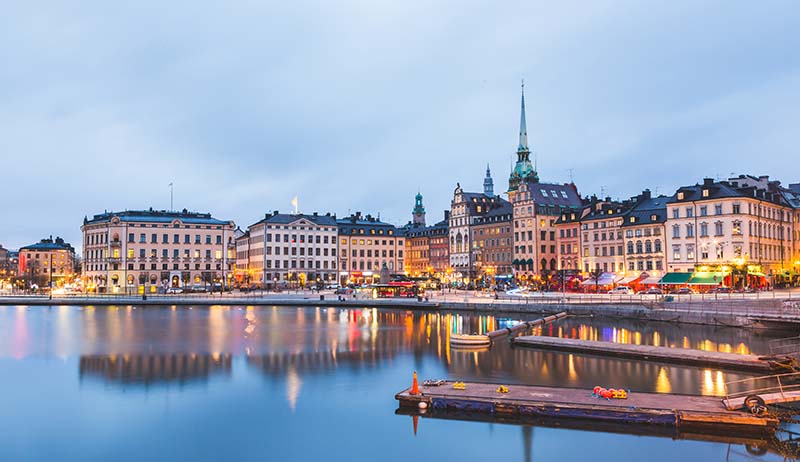
Sweden
The country of 10 million Swedish scores perfect on human rights and the environment. With an almost equivalent per capita GDP of $53,000, the country has one of the highest child security standards with the best in class health and education infrastructure – relocating with kids should be a great idea!
Sweden is considered a great place to raise kids. Institutions like Försäkringskassan (Swedish Social Insurance Agency), make it possible for parents to spend more time with their children. Children from the age of three receive 525 hours a year free of charge. The system is complemented by paid parental leave arrangements that provide 480 days for each child, insured at 80 per cent of parental income.
Both parents are expected to actively take part in raising children. This includes taking time off from work to take care of a sick child or to go on paid parental leave. Parents can share days or transfer them to each other.
Country breakdown:
Safety: 9/10
Childcare cost: 8/10
Happiness: 10/10
Health: 9/10
Education: 7/10
Maternity and paternity leave: 9/10

Finland
Finland has been widely recognised as one of the safest country in the world. Considering the dangers of the world today such as war, crime, and terrorism – being safe and sound is something every family needs above all else when you are relocating with kids. Parents worry over their kids’ safety above everything else. Knowing you’re living in a country known for its safety helps turn this everyday worry into an afterthought.
New mothers can choose to either receive the baby box- a container holding many essentials for taking care of a baby, which can also double as a crib, which all mothers residing in Finland can apply to receive. If there is no need for this package, the family can apply to receive an untaxed sum of 140 euros per newborn – all covered by the Finnish government. The government also offers a paid maternity leave of 4 months-not only for regularly employed mothers, but also those who are self-employed, students, and even unemployed. And if that isn’t enough, “rainbow families”, or same-sex families are allowed to avail of these benefits.
The fees for public child day care (varhaiskasvatus) depend on the family’s income. The maximum fee of municipal early childhood education is US$340 (€288) for the first child and US$170 (€144) for the second child. The minimum fee is US$32 (€27) per child.
Country breakdown:
Safety: 10/10
Childcare cost: 9/10
Happiness: 9/10
Health: 8/10
Education: 7/10
Maternity and paternity leave: 9/10
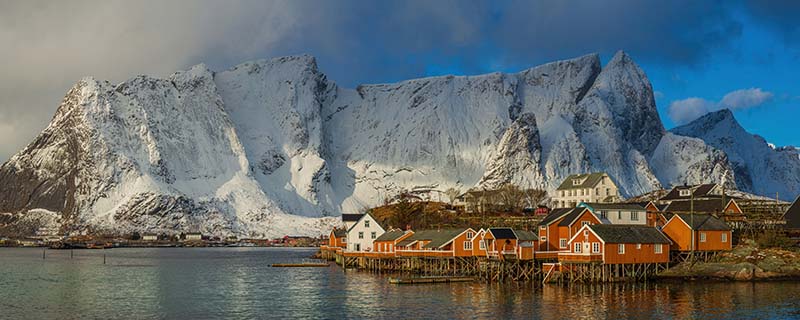
Norway
Norway is considered one of the most environmentally suitable countries for kids. The westernmost country in the Scandinavian Peninsula, with a population of over 5 million, is known for its highly advanced health and education infrastructure. With per capita income of over $74,000, the Norwegian are providing a perfect ecosystem for the overall growth of kids in the happiest environment – great to know when you are relocating with kids.
Another reason why Norway is a very good country to raise your children is due to the fact that children’s’ development and care are prioritised. Children of all ages get to play outdoors to help boost their imagination, while every city in Norway provides a variety of activities for families. Children in Norway begin attending kindergarten at the age of one, right after parental leave ends. This is known as barnehage and children normally go to one in their municipality. There are also different types of kindergartens, depending on how many hours a day you need childcare, so you have several options to choose from, amid which such where you can interact with other parents while your children are playing.
Your family always comes first in Norway and employers understand this, so they are very considerate when it comes to your taking care of your children when they get sick. Moreover, all children under the age of 16 are entitled to free medical care, including dental care, so there’s no cause for concern if you and your family are moving to Norway.
Country breakdown:
Safety: 9/10
Childcare cost: 8/10
Happiness: 10/10
Health: 9/10
Education: 7/10
Maternity and paternity leave: 9/10
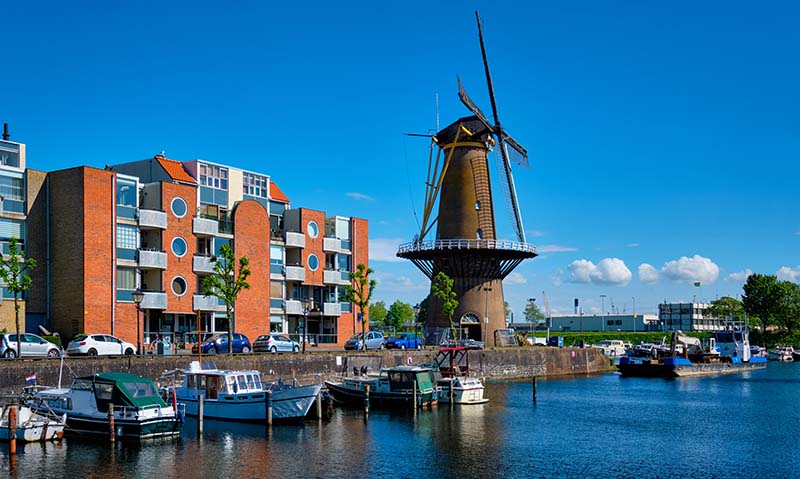
The Netherlands
When it comes to health and welfare, the Netherlands is in another North European country, leading the raising of children ranking and everything related to relocating with kids. Known for family values and freedom, the country has the highest environmental rating along with highly protective child safety standards. With a population of 17 million, the country of windmills and ports has the world’s best health and education system. People with per capita GDP of over $56,000 are spending big on child care.
There are many theories on why the Netherlands is home to the world’s happiest children, but many agree that it is a combination of numerous things. A child’s opinions and views are valued and heard in the Netherlands. In fact, children are encouraged to voice their opinions at a young age. Schools and (international) childcare providers often work with a children’s council that meets regularly to discuss and participate in decisions on current topics.
The Dutch government encourages cities to promote the rights and interests of children through local initiatives such as reserving three percent of residential areas for children’s playgrounds, sandboxes, and more. In the Netherlands, it is not unusual to find more than one playground, soccer field, and fitness area per neighbourhood.
Country breakdown:
Safety: 7/10
Childcare cost: 8/10
Happiness: 10/10
Health: 8/10
Education: 7/10
Maternity and paternity leave: 9/10
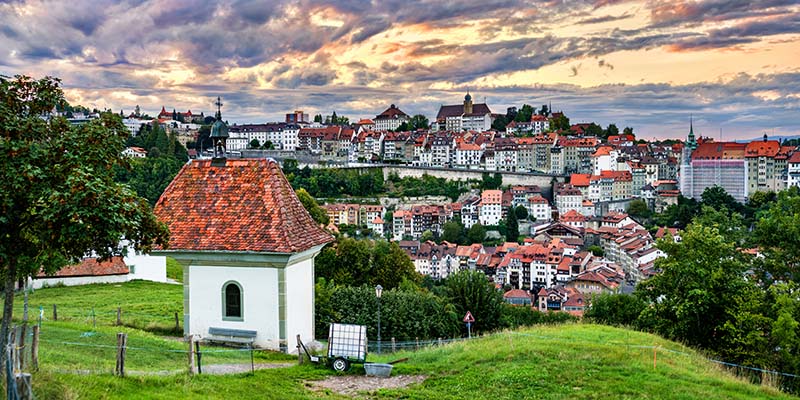
Switzerland
The quality of maternal and baby healthcare in Switzerland is second to none. Relocating with kids can be a great idea: from the moment their babies are born, Swiss mothers are surrounded by comforting expert help from people with time to spare. There is no rush to send new mothers home from the hospital. Time is taken to help get breastfeeding established if desired. And in most cases, it is desired. Almost two-thirds exclusively breastfed in the first three to four months, way ahead of most other European countries.
Swiss parents are generally reluctant to hand their children over to childcare providers. This may have something to do with the history of children who were taken away from poor parents by the authorities in the not very distant past. Grandparent care is very common, and mothers of young children rarely work full time. More fathers are reducing their working hours too.
Country breakdown:
Safety: 8/10
Childcare cost: 6/10
Happiness: 8/10
Health: 10/10
Education: 7/10
Maternity and paternity leave: 9/10
Top tips from expats relocating with kids
Moving abroad with children can be one of the most rewarding experiences in life, and it is becoming more and more common nowadays among families who see living abroad as something they must experience at least once in their lifetime. But moving abroad with children is not an easy task – apart from financial factors, emotions and expectations need to be factored in before jumping on a plane, in order to ensure a successful transition. Where will they go to school? How will they settle in? Will they make friends? How does relocation affect a child? How can you make sure children get the most from their expat experience, whether you’re moving permanently or temporarily?
We have put together top tips for relocating with kids, to help you ensure that your relocation can be a great experience for the whole family. There’s no one better to give advice on relocating with kids than those of us who have already done it:
Tip 1/ Getting ready to move
Ask seasoned expats and they’ll agree that it’s important to get the kids involved in researching and preparing to live abroad. Talk to your children about where you’re going and why, and the opportunities the move offers. They might be excited about the move, but if they’re worried, listen to what they have to say and discuss the issues with them.
If at all possible, visit the place you’re moving to ahead of time – you can even give older children the chance to give their input when choosing a home.
Try to research the weather patterns of your chosen destination – moving abroad where it is sunny can be more appealing to younger members of the family!
We also recommend researching local and traditional celebrations in your new destination. Christmas and New Year is traditionally a time to be spent with friends and family. If it is the most celebrated time of year in your family, imagine your first Christmas in your new country where you do not know anybody, you may not even be able to buy a Christmas tree and all the gifts sent by post have not yet arrived.
Clara Wiggins, along with her husband and their two daughters, have lived in a host of locations around the world. She suggests preparing children for moving by involving them in home searches and school visits.
“If you are not able to take children on a look-see, I would recommend doing a video for them or even a live Facetime or Skype so they can get an idea of where they are going.”
Google Earth and Streetview can be useful too, she says.
Tip 2/ Research children’s healthcare
Concerns about your children’s health will be one of the items at the top of the agenda when you move to a new country. It’s important to research what’s available when you choose your location:
- Will your child be able to access state healthcare and what is the standard of that healthcare?
- Will you be living within easy reach of doctors’ surgeries and hospitals?
- If your child needs specific medication or access to ongoing treatments, how accessible will these be?
- If the company you’re working for is providing health insurance, will it cover your children?
Call local hospitals or doctors, and seek advice from other expats via online forums and Facebook groups.
Once you get to your new country, be aware that many health issues can be prevented by using common sense. Make sure that your children understand safety rules about drinking water; for example, can they brush their teeth with tap water? The same applies to food safety, especially at street stalls and markets.
But given the incredibly varied quality and availability of public healthcare from country to country, not all expats will move to a location that offers reliable local medical services. You may even be expected to foot the bill for private healthcare, so having international health insurance cover in place is vital before you go anywhere.
While her family were posted in St. Lucia, Clara knew that if there was a serious health incident, they would be medically evacuated under the terms of her private insurance plan. But she also suggests preparing for the unexpected.
“I always recommend doing a ‘dry run’ to your local emergency department or hospital and making sure its location is in your GPS and number is in your phone,” she says. She points out that it is also important to know what the procedure is when you arrive at hospital, for example, do you need to pay for treatments up front?
Such procedures will vary greatly depending on whether you have an international private medical insurance (IPMI) plan, if it provides direct settlement to the hospital, or if you’re accessing care independently.

Expat children’s vaccinations
Before you make the move, find out what vaccinations your children need for the country of your choice. They may be different to the ones they’re routinely given at home, as there may be different health risks in the country you’re moving to.
You’ll also need to stay up-to-date with your child’s immunisations while you’re overseas. Be aware that countries have their own vaccination schedules, so your child may receive their jabs at a different age than they would if they were at home.
After four years of travelling together, Theodora and her son settled in Bali. “It’s important to be aware that medical care in Bali isn’t the best,” says Sutcliffe, “Most expats get medical insurance that covers them to be evacuated to home or a second country, typically Singapore, in emergencies.”
Tip 3/ Education for expat children
Expat parents have a couple of choices for education for school-age children:
- Local schools
- International schools
Again, it’s important to do your research before making a decision on where to live. Whether you choose to send your child to a local school may depend on the standard of state education in the country you’re moving to. However, one advantage of doing this is that it will undoubtedly help your child learn the language of their new home – something that will stand them in good stead in the future.
On the other hand, an international school will enable your children to meet others in a similar situation to them, which may help them settle in.
Also consider schools when deciding what time of year to make the move – it may be difficult for your child to start their new school in the middle of a year, so you might want to arrange your move to coincide with the start of a new school year. Research school term times and enrolment procedures. Even in your home country, starting a child in a new school in the middle of the school year can be challenging. Imagine starting them in a new school in a new country in the same circumstances. Try to make it easier for your kids to feel at home in the new country.
Tip 4/ Think of safety
Make sure your children understand safety issues in their new home, for example, which neighbourhoods are safe, whether it’s safe to travel alone and any natural hazards to watch out for. In Bali, where Theodora and her son are based, the beach is a great place to meet other kids but there are dangers to be aware of. “Make sure you and your children understand water safety: the currents in the sea are no laughing matter,” she says.
Finding a place to live in the right neighbourhood is an exercise in patience. It’s also an investment in time that many people simply do not have when they arrive. But it need not be a minefield. It’s far easier to have all the data presented as a clear comparison of available properties in your city. Services vary by country, but many real estate websites have robust search engines that allow you to customize your search for a home.
With the right pre-move preparations and support from relocation agents, most expats settle in well during their first year; the majority go on to enjoy a richly rewarding experience. But the importance of finding the right place to live in the right neighbourhood cannot be overstated. Also make your kids aware of any cultural issues that could get them into tricky situations.
“Frame the move as a great opportunity and adventure, not as a challenge,” Jaimie says. “Do research as a family of your new home, teach them about the culture, look up fun things to do in the new country.” Seaton also ensured that her children understood cultural differences before they moved to Thailand from US.
“The main things we had to discuss with them were the strict rules around the royal family. It’s against the law to insult the royals, especially the then-king, who has since passed away.” When it comes to healthcare, Jaimie found local services to be excellent.
“The medical care in Singapore (and Thailand) is far superior to the US.”
Tip 5/ Make your new house a home
Before you shop your possessions to a new country, even letting your children make small decisions about what to take helps them feel in control and a part of the move. Younger children may become distressed seeing all their toys and possessions being taken away; make sure to explain to them that they’re just being moved to their new bedroom.
When packing your survival bags for the move, ask your kids to pack their three desert island essentials to keep them entertained on the journey or while they await the delivery of the rest of their belongings. You can also ease the transition by bringing familiar things from home on the plane, rather than waiting for them to arrive later.
“We brought my younger daughter’s fairy lights for her bedroom, and we also brought their duvet and pillow covers. The first few nights in a new place can be hard so making their rooms feel like home is one way to help”, Clara Wiggins says.
When you finally arrive at your destination, catch up on some sleep, take some time to relax, and explore your new surroundings. You can now concentrate on making your new house a home and settling back into family life.
You’ll need your energy for when your belongings arrive; it’s a good idea to get the children’s rooms sorted first. Fill these rooms with familiar things to make them feel more comfortable in their new environment. Get older children and teenagers involved in unpacking their own belongings. By allowing them to decide where their belongings go and decorate their own room, they can build some excitement and feelings of positivity about being in a new city. And don’t forget to celebrate the move as a family. You can even create a new family ritual to mark the happy day.
Tip 6/ Settling in and enjoying your new life
While some children will adapt easily, others may need more time. If your child is missing friends back home, Skype, Zoom and FaceTime are good ways of keeping in touch.
Writing letters helped Clara’s daughter. “Very few of these got sent, so what I actually think she was doing was just processing her feelings and this is the best way she could do it.”
To keep a familiar routine, Clara’s tip is to continue doing sports and hobbies your child already enjoys, “In our case this has been football and swimming, which has also given them a chance to meet children away from the school environment.”
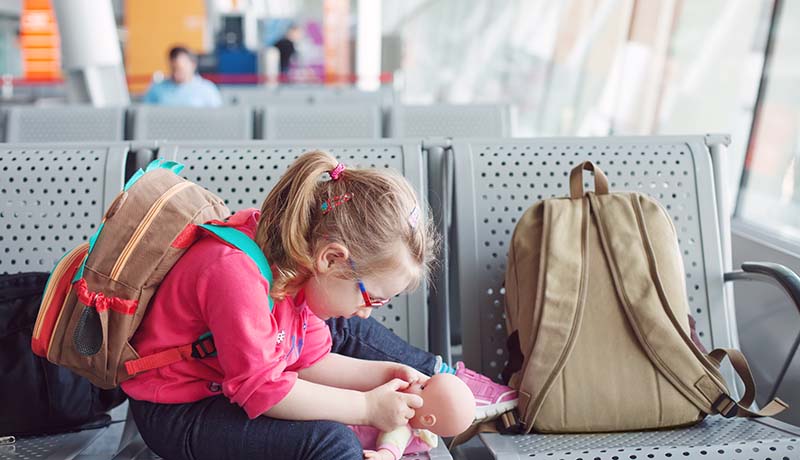
Final thoughts before you make a decision to move abroad with family…
Integrating into a new country and community is difficult at any age. Particularly if you’ve made the choice to move abroad for work reasons, you may be tempted to avoid adapting to your new home’s culture and language. Pushing yourself to do so, however, can make it easier for your children to do the same. Lead by example and let your children see the joy and wonder that your new country can provide.
The benefits of exposing them to a new culture can be enormous, from providing them with valuable language skills to giving them a broader understanding of the world. Although the challenges of moving abroad with children can also be significant, taking steps to prepare your family for the move well in advance–and paying close attention to your children’s needs throughout the process–can help every member of your family reap the long-term advantages of time spent abroad.
Wherever you decide to move, just make sure you have the confidence of global health insurance. Contact us at GMS Move to find out how we can find the right International Healthcare Solutions for all you and your families requirements.


